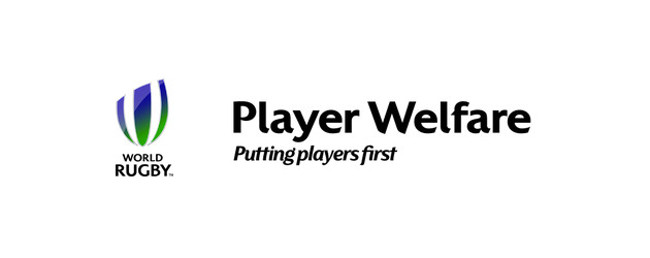All World Rugby tournaments to adopt RWC player welfare standards
Paves the way for a uniformed approach to player welfare
All elite tournaments strongly urged to follow suit
World Rugby prioritises injury prevention with concussion at the heart of the plan
Evidence indicates that injury rates are not increasing
In a significant step forward for player welfare, the World Rugby Executive Committee has paved the way for a uniformed approach to the implementation of minimum standards across elite rugby events.
The ground-breaking 10-point player welfare standards, which World Rugby announced in November 2014 will debut at Rugby World Cup 2015, has been driven by the organisation’s Medical Commission and will now also apply to World Rugby’s portfolio of international competitions.
The Executive Committee has also strongly recommended adoption of the standards by other international-level competition owners and World Rugby has been in dialogue with the major international event owners in that regard.
The standards feature six key measures for concussion prevention and management, including mandatory baseline concussion testing and education, use of technology to identify injuries and an untoward incident review system.
The 10-point player welfare standards for RWC 2015 are:
1. Prior to the tournament, each team doctor or the union’s chief medical officer must confirm that all players are medically, mentally, dentally and physically fit to attend and to participate.
2. Each player must have completed the World Rugby cardiac screening questionnaire and have undergone a cardiac examination, including a mandatory electrocardiography (ECG) test. This assessment must be completed prior to the player’s arrival at the tournament.
3. All team medical staff and match day medical staff must have completed the World Rugby education modules pertaining to concussion management, anti-doping and anti-corruption.
4. All team medical staff and match day doctors must have completed, as a minimum, World Rugby Level Two Immediate Care in Rugby (ICIR) accreditation or equivalent prior to the tournament.
5. Within a year prior to the tournament, all players and team management must have completed a concussion education session. As a minimum, this session will cover the essential information outlined in the head injury assessment protocol document.
6. Each player must complete a baseline concussion assessment using, as a minimum, the Sport Concussion Assessment Tool (SCAT) 3. It is recommended that teams also include neurocognitive computer assessments.
7. Teams must confirm that all players have completed a concussion risk stratification to support individual concussion management.
8. Teams must confirm that their medical staff, coaches and management will comply with the World Rugby permanent and temporary removal from field of play criteria for head impact events.
9. Teams must acknowledge that the tournament has an untoward incident review system for potential medical mismanagement and, specifically, for incidents where head injury protocols are not enforced. All team staff must acknowledge that they will participate, if requested, in any untoward incident review and that a charge of misconduct can be applied following such a review.
10. Teams must acknowledge that the match day doctor has the power to remove an injured player unilaterally from further participation.
World Rugby Chief Medical Officer Dr Martin Raftery said: “Player welfare is the number-one priority for World Rugby and these uniform standards, set for Rugby World Cup 2015, represent a significant step forwards for the continued protection and support for our elite players.
“While injuries at the elite level are not increasing and have generally remained stable since 2002, our role is to reduce risk further and prioritise prevention, which are reflected in these standards, particularly in the area of concussion.
“The Executive Committee of World Rugby has recommended that international-level competitions adopt the standards, where possible. This is to ensure that, as a sport, we collectively drive consistency in the provision of world-class standards for our players.”
International Rugby Players’ Association Executive Director Rob Nichol backed the decision: “This move is a positive step forward for rugby and player welfare. The provisions clearly outline standards expected on some critical player welfare matters, provide for the all-important education element and incorporate an adverse incident review mechanism which will lead to continuous learning and improvement when things do not go so well.
“We continue to work with the game’s administration on the evolution of these and other player welfare standards.”



